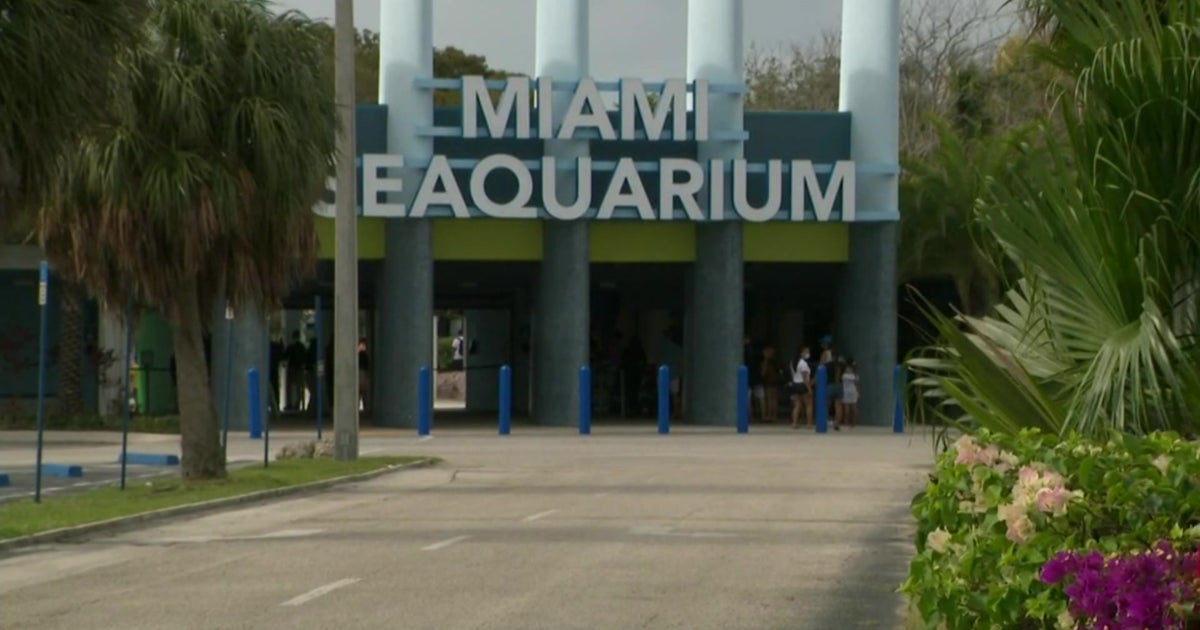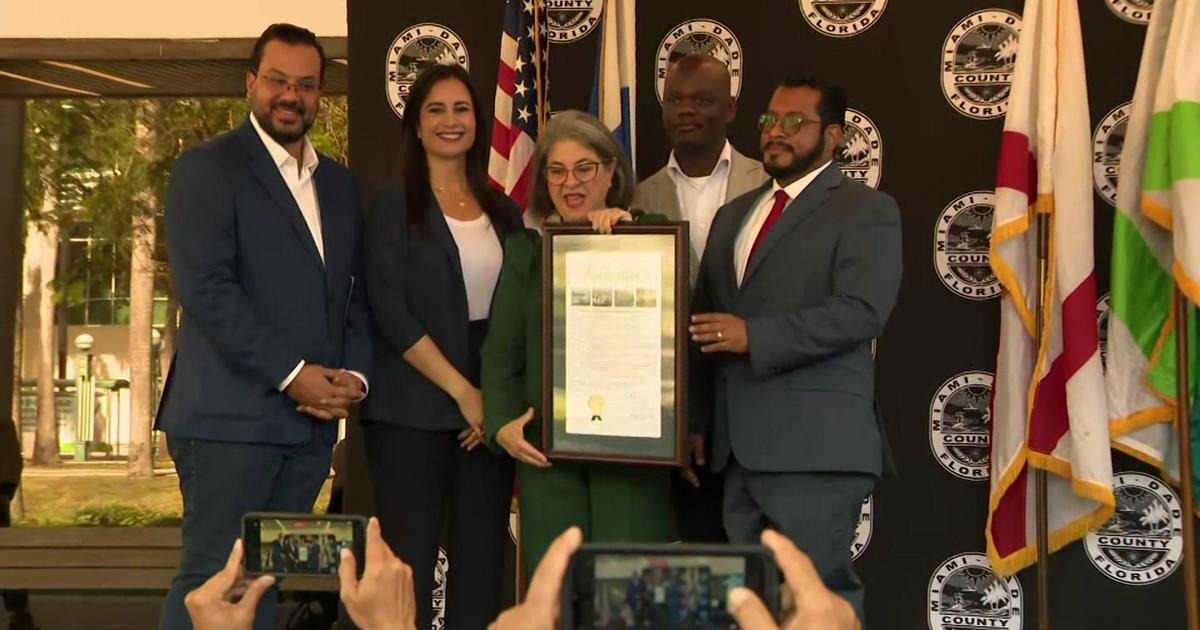Baby Gorilla Born At Zoo Miami Dies
SOUTHWEST MIAMI-DADE (CBS4) – The baby gorilla recently born at Zoo Miami has died, zoo officials said.
The zoo said zookeepers arrived at work Friday morning to find the baby, the second offspring of 14-year-old Kumbuka the gorilla, dead and he passed away overnight.
The baby was born on Father's day on June 19 at the zoo. The tiny western lowland gorilla was healthy when he was born. Zoo Miami called it the most significant birth of the year. It was the first gorilla born in Florida this year.
Click here for Baby Gorilla slideshow.
Gorillas, like all great apes, are very protective of their young; therefore veterinary and Animal Science staff members had to move Kumbuka in order to retrieve the infant to perform a necropsy and hopefully determine the cause of death, the zoo said in a statement Friday.
"Although this outcome is disappointing, Kumbuka has definitely progressed with her mothering skills," according to the statement. "While the infant was alive, its mother showed good nursing behavior, something she hadn't done with her first offspring."
The zoo said Kumbuka is recovering.
Officials do not know why this happened or what may have caused the infant's death.
A complete necropsy will be performed in an effort to determine the cause of death.
Kumbuka first arrived at Zoo Miami in 2007 from the Pittsburgh Zoo in hopes of breeding.
This is her 2nd infant, she lost her first baby and hopes were high for the second newcomer.
The new baby was on exhibit with the rest of the gorilla family, including 32-year-old JJ, the father who has sired 4 offspring.
Gorillas have no specific breeding season. Females bear offspring every 3½ to 5 years and have a gestation period of approximately 8 ½ months. Gorilla babies weigh 2 to 5 pounds at birth and are weaned at around 8 months. By 2½ years, they can travel under their own power fast enough to keep up with the adults. Females reach sexual maturity at 6 to 7 years and males at 9 to 10 years.
The gorilla is the largest living ape and is found in the lowlands and mountains of western equatorial Africa to central and eastern Africa, depending on the sub-species. Commonly known as the "gentle giant", there are probably less than 10,000 of these majestic animals in the wild today. They are also a focus of the Zoo's participation in the Species Survival Plan, (SSP) in which North American zoos collaborate to encourage the development of a self-sustaining zoo gorilla population, helping to ensure the survival of this endangered species. Each SSP manages the breeding of a species in order to maintain a healthy and self-sustaining population that is both genetically diverse and demographically stable.



